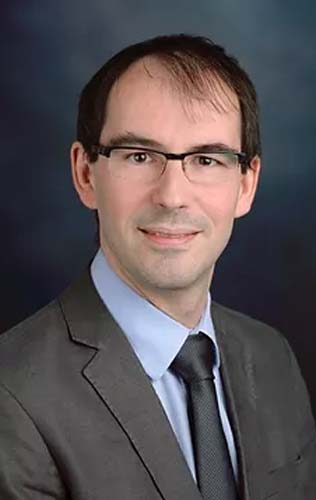New clinical research indicates that a widely used food additive, carboxymethylcellulose, alters the intestinal environment of healthy persons, perturbing levels of beneficial bacteria and nutrients. These findings demonstrate the need for further study of the long-term impacts of this food additive on health.

BENOIT CHASSAING, PhD
Principal Investigator, Chassaing Lab
Associate professor, French National Institute of Health and Medical Research
Associate professor, French National Institute of Health and Medical Research
Abstract
"Ubiquitous food additive and microbiota and intestinal environment"
bio
Associate professor Chassaing's laboratory is part of the French National Institute of Health and Medical Research (INSERM) and focuses on understanding how environmental factors are involved in shaping detrimental microbiota, with a particular focus on intestinal inflammation and metabolic deregulations.
Dr. Chassaing obtained his PhD in microbiology at the University of Clermont-Ferrand (France), identifying factors involved in the virulence of adherent and invasive Escherichia coli strains (pathovar involved in the etiology of Crohn's disease).
Following his PhD defense in 2011, he joined Georgia State University to work with Dr. Andrew T. Gewirtz on various subjects related to mucosal immunology, trying to decipher how genetic and environmental factors can perturb intestinal microbiota composition in a detrimental way, leading to intestinal inflammation.
Register NowDr. Chassaing obtained his PhD in microbiology at the University of Clermont-Ferrand (France), identifying factors involved in the virulence of adherent and invasive Escherichia coli strains (pathovar involved in the etiology of Crohn's disease).
Following his PhD defense in 2011, he joined Georgia State University to work with Dr. Andrew T. Gewirtz on various subjects related to mucosal immunology, trying to decipher how genetic and environmental factors can perturb intestinal microbiota composition in a detrimental way, leading to intestinal inflammation.

